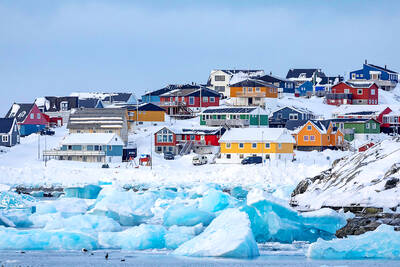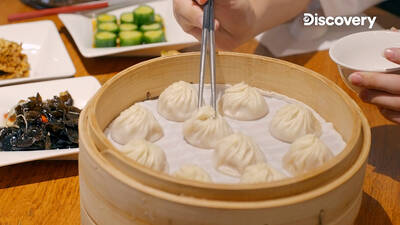對話 Dialogue
馬克:小實,你知道那是什麼嗎?
Make: Xiǎoshí, nǐ zhīdào nà shì shénme ma?

小實:喔,那是讓大家自由捐贈食物給需要的人。
Xiǎoshí: Ō, nà shì ràng dàjiā zìyóu juānzèng shíwù gěi xūyào de rén.
馬克:需要食物的人會自己來拿嗎?
Make: Xūyào shíwù de rén huì zìjǐ lái ná ma?
小實:不是的,超市會先整理和分類以後,再分配給需要的人。
Xiǎoshí: Búshì de, chāoshì huì xiān zhěnglǐ hàn fēnlèi yǐhòu, zài fēnpèi gěi xūyào de rén.
馬克:嗯,在美國,我們也有類似的地方叫「食物銀行」。
Make: En, zài Měiguó, wǒmen yěyǒu lèisì de dìfāng jiào `shíwù yínháng’.
小實:是啊!在臺灣,除了個人捐贈,很多量販店也會捐贈食物喔。
Xiǎoshí: Shì a! Zài Táiwān, chúle gèrén juānzèng, hěnduō liàngfàn diàn yě huì juānzèng shíwù ō.
馬克:有些保存效期比較短的食物,如果即時送出就不怕浪費了。
Make: Yǒuxiē bǎocún xiàoqí bǐjiào duǎn de shíwù, rúguǒ jíshí sòngchū jiù búpà làngfèi le.
翻譯 Translation
Mark: Xiaoshi, do you know what that is?
Xiaoshi: Oh, that allows everyone to freely donate food to those in need.
Mark: Will people who need food come and get it themselves?
Xiaoshi: No, the supermarket will organize and classify them first and then distribute them to those in need.
Mark: Well, in the United States, we have similar places called “food banks.”
Xiaoshi: Yes! In Taiwan, in addition to individual donations, many hypermarkets also donate food.
Mark: Some foods with a relatively short shelf life can be distributed immediately to avoid waste.
Xiaoshi: Yes, making efficient use of resources is also a way to care for the Earth!
單字片語 Vocabulary
. 捐贈(juānzèng ) to donate
2. 整理 (zhěnglǐ) to tide up
3. 分類 (fēnlèi) classification
4. 類似 (lèisì) similar
5. 保存 (bǎocún) to save
6. 效期(xiàoqí ) expiration date
7. 即時 (jíshí) immediate
8. 愛護 (àihù) to care
9. 方式 (fāngshì ) method, way
教材音檔 Audio Files
教材影片 Video Files:
https://www.instagram.com/celc.nou_tw/guide/_/17999106352646292/
實踐大學華語中心提供
By Shih Chien University Chinese Language Center: https://chineseusc.com/

US President Donald Trump has renewed his ambition to take control of Greenland for national security reasons and questioned whether Denmark has any legal right to the Arctic island. The debate has revived scrutiny of how Greenland became part of Denmark, its current self-rule and path to independence, and Washington’s military footprint. HOW DID DENMARK GET GREENLAND? Greenland was inhabited by Inuit peoples from Asia and North America intermittently from around 2,500 BC. Around 985 AD, Vikings led by Erik the Red settled in southern Greenland, farming and building churches. Around the same time, ancestors of today’s Inuit arrived, living as hunters

Owls have long fascinated people with their distinctive appearance and mysterious habits. These nocturnal birds possess large, round eyes and a flat facial disc. Their feathers come in shades of brown, gray, or white, helping them blend easily into the darkness. The most remarkable trait of owls is that they can turn their heads without damaging blood vessels. Contrary to popular belief, they can only rotate their heads up to 270 degrees, not 360 degrees. Owls have 14 cervical vertebrae, which is twice as many as humans. This special physical structure compensates for their inability to move their eyes within their

AI-generated summaries are shaking up the media world. Tools like Google’s AI Overviews now provide users with direct answers above the search results, resulting in fewer people clicking on news links. For publishers who rely on that traffic to generate advertising revenue, this shift is hitting hard. The fallout is measurable. Many sites have seen a sharp drop in traffic since AI summary features rolled out. An analysis revealed that a news outlet that had once ranked first on Google lost up to 79% of its traffic when its link appeared beneath an AI-generated summary. Statistics also show that

A: Bloomberg just released its annual travel guide, titled “25 Best Places to Travel in 2026.” What were the best Asian destinations? B: There were actually six Asian hotspots: Taiwan’s Taipei, Malaysia’s Penang, Kazakhstan’s Almaty, Indonesia’s Rote Island, India’s Tiger Reserves, and Oman. A: With its mix of traditional food and modern cuisine, Taipei has become a rising food capital in Asia. B: As Bloomberg reported, “Taiwan is a place that bubbles up in culinary conversation because of its famed beverage, bubble tea, and its early adoption of modern night markets.” A: And Din Tai Fung has now